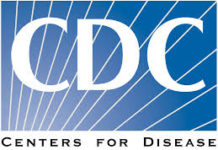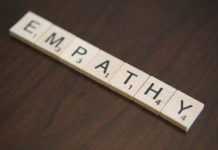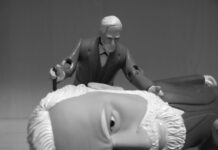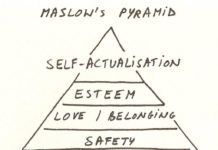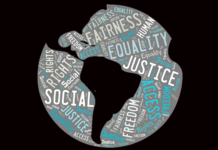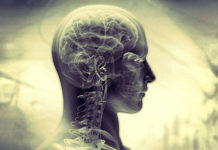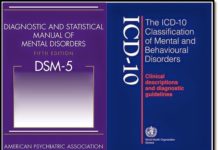Mental Health Professionals Critique the Biomedical Model of Psychological Problems
While a great deal of the excitement about advances in psychological treatments comes from the potential for research in neuroscience to unlock the secrets of the brain, many mental health experts would like to temper this enthusiasm. A special issue of the Behavior Therapist released this month calls into question the predominant conception of mental illnesses as brain disorders.
Cognitive Behavioural Therapy Does Not Exist
Since the 1980s, a type of psychotherapy called Cognitive Behavioural Therapy (CBT) has become dominant. Like it or loathe it, CBT is now so ubiquitous it is often the only talking therapy available in both public and voluntary health settings. It is increasingly spoken about in the media and in living rooms across the country. Yet when we speak about CBT, what are we talking of? For CBT only exists - as we will see - as a political convenience.
Suicide Rates Rise While Antidepressant Use Climbs
Multiple media sources are reporting on new data from the CDC revealing a substantial increase in the suicide rate in the United States between 1999...
Traditional South African Healers Use Connection in Suicide Prevention
Study finds that traditional healers in South Africa, whose services are widely used by the country’s population, perform important suicide prevention work.
Study Finds Hearing Voices Groups Improve Social and Emotional Wellbeing
Hearing Voices Network self-help groups are an important resource for coping with voice hearing, study finds.
Therapist Empathy Predicts Success in Psychotherapy
An updated meta-analysis reveals that therapist empathy is a predictor of better psychotherapy outcomes.
The Effects of Practicing Psychotherapy on Therapists’ Personal Lives
A new study, published in Psychotherapy Research, explores how having a career in psychotherapy affects therapists’ personal lives.
Cognitive-Behavioral Therapy Halves the Risk of Repeated Suicide Attempts
A new study suggests that cognitive-behavioral therapy (CBT) may halve the likelihood of re-attempting suicide, for those who have attempted in the past.
Study Confirms Higher Suicide Risk for Sexual Minority Adolescents
Researchers report that sexual minority adolescents have considered, planned, and attempted suicide substantially more than their heterosexual peers.
Psychologist Debunks Common Misconceptions of Maslow’s Hierarchy
Utilizing Maslow’s published books and essays, psychologist William Compton delineates common myths and attempts to respond to them.
What Does Social Justice Really Mean for Psychologists?
Without clarity and consensus around what social justice means, psychologists risk perpetuating injustices that undermine their stated mission.
New Book Deconstructs Ideology of Cognitive Therapy
CBT forwards a hyper-rational perspective of human suffering that complements a managerialist culture of efficiency and institutionalization in the Western world.
Does Psychotherapy Reproduce or Disrupt Neoliberal Capitalism?
Researchers explore neoliberal influences on interactions in psychotherapy and question whether the radical potential of psychotherapy can counter prevailing social systems.
Researchers Test Harms and Benefits of Long Term Antipsychotic Use
Researchers from the City College of New York and Columbia University published a study this month testing the hypothesis that people diagnosed with schizophrenia treated long-term with antipsychotic drugs have worse outcomes than patients with no exposure to these drugs. They concluded that there is not a sufficient evidence base for the standard practice of long-term use of antipsychotic medications.
Psychotherapy is Less Effective and Less Accessible for Those in Poverty
A special issue explores the connection between poverty, mental health, and psychotherapy.
How Psychological Injuries Cause Physical Illness—And How Therapy Can Heal It
How does experiencing physical abuse as an 8 year old shorten one's lifespan? How do insulting words turn into diabetes? Or sexual abuse trigger a heart attack 50 years in the future? Emotional wounds can damage DNA and produce a huge web of destructive effects, but therapy can turn the process around.
New Study Investigates Negative Side Effects of Therapy
Researchers find that nearly half of cognitive behavioral therapy (CBT) patients experience treatment side effects.
Psychodynamic Therapy Revealed to be as Efficacious as Cognitive Behavioral Therapy
Meta-analytic study finds that psychodynamic therapy outcomes are equivalent to those of CBT and other empirically supported treatments.
Developing Alternatives to the DSM for Psychotherapists
A new article suggests counselors and psychotherapists are dissatisfied with current diagnostic systems and outlines some potential alternatives.
Letting Negative Projective Identifications Come, and Letting Them Go
In the instant I perceive that I’ve succeeded in inducing fear and shame in you, I can feel a palpable relief from my own fear and shame. This process is called projective identification. I gradually learned as a therapist to be aware of when a person seemed to be mysteriously able to create distressful emotional states in me — states that they were themselves subjectively feeling, but weren’t fully aware of.
Antidepressants Not Superior to Psychotherapy for Severe Depression
On Wednesday, JAMA Psychiatry released a meta-analysis comparing the results of cognitive-behavioral therapy and antidepressant medication in severely depressed populations. Currently, many practice guidelines suggest that antidepressants be used over psychotherapy for major depressive disorder. The analysis, however, found that “patients with more severe depression were no more likely to require medications to improve than patients with less severe depression.”
Psychotherapy Effectiveness for Depression Inflated by Publication Bias
While publication bias has been known to overestimate the efficacy of antidepressant treatments, a new study suggests that research on the use of psychotherapy in depression suffers from a similar bias.
Madness and the Family, Part III: Practical Methods for Transforming Troubled Family Systems
We are profoundly social beings living not as isolated individuals but as integral members of interdependent social systems—our nuclear family system, and the broader social systems of extended family, peers, our community and the broader society. Therefore, psychosis and other forms of human distress often deemed “mental illness” are best seen not so much as something intrinsically “wrong” or “diseased” within the particular individual who is most exhibiting that distress, but rather as systemic problems that are merely being channeled through this individual.
Mindfulness Pain Relief Distinct from Placebo Effect
A new study demonstrates that the practice of mindfulness may ease pain in a way that is mechanistically distinct from the placebo effect. Research, published in the Journal of Neuroscience, found that mindfulness meditation not only outperformed placebo and fake meditation for pain relief but that it also activated different brain regions than the placebo treatments.
Experts Decry Dangerous Use of Antipsychotics in Children
In a featured article for Psychiatric Services, psychiatrists from Dartmouth raise the alarm on the increasing numbers of children prescribed dangerous antipsychotic drugs. Despite the fact that data on the safety of long-term use of these drugs in this vulnerable population “do not exist,” the rate of children and adolescents being prescribed antipsychotic drugs have continued to increase over the past fifteen years.


